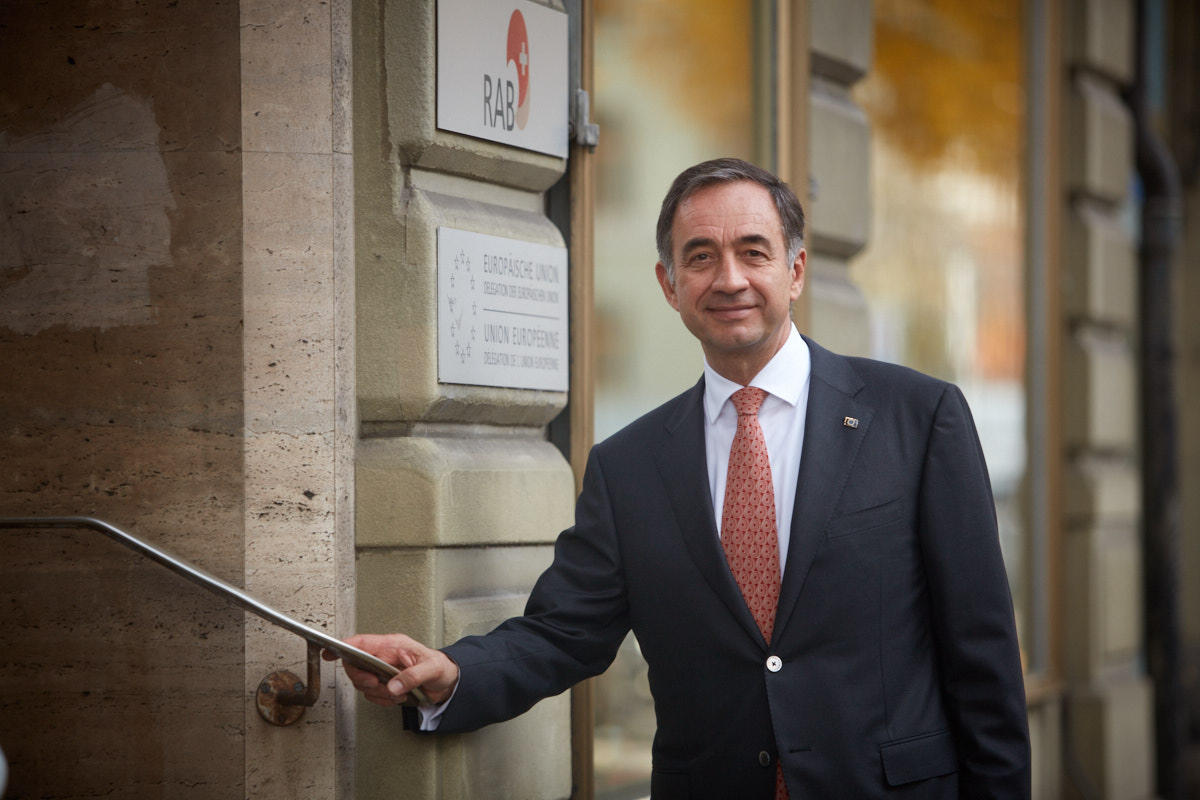Swiss trade unions defy EU over wage protection

Switzerland has the highest wages in Europe and trade unions are doing everything they can to ensure this remains the case - even if it means clashing with the EU. In Germany, they have received a lot of criticism for this stance and not all trade unions in Europe support them.
The main bone of contention is a small clause in Swiss law that requires foreign companies to give eight days’ notice of their intention to operate in Switzerland. This gives the Swiss authorities sufficient time to check whether domestic wage protection measures are being observed.
The legal clause is part of a series of measures protecting Swiss working conditions that were bolted onto an agreement with the EU to allow the free movement of workers across borders.
No framework without concessions
Companies in southern Germany, in particular, are bothered by these “bureaucratic Swiss regulations”. They want to significantly shorten the notice period they must give before posting workers to Switzerland.
On average, the Swiss authorities sanction ten companies every day for violations of its measures to protect working conditions. The State Secretariat for Economic Affairs (Seco) maintains a list of companies that have been punished, fined or blocked for such violations in the past five years.
The list includes 19,200 cases that have received final judgement.
Among the sinners are many small businesses from at least 30 countries. But it is not uncommon for larger, high-profile companies to be sanctioned. Violations are typically punished with fines or suspensions of permits.
The complaints of foreign companies seem to have found a sympathetic ear in the EU. Brussels has made it clear on several occasions that Switzerland must tone down these defensive measures if it wants to negotiate a framework agreement governing bilateral ties with the EU.

More
Hot summer for Swiss-EU framework negotiations
According to Brussels, Swiss wage protection measures are disproportionate while European rules are robust enough to also cover Switzerland.
However, Swiss trade unions do not want to deviate from the current protective regulations. They point to a long list of violations by foreign firms that underpin the continued need to protect wages.
ETUC supports Swiss protection
Last week they were roundly criticised for refusing to come to the table to negotiate possible changes with the Swiss government, cantons and employers’ groups. Political parties, particularly from the right, now accuse them of digging the grave of the framework agreement with the EU.
Swiss trade unions have received support from the European Trade Union Confederation (ETUC). This body wrote a letter to the European Commission calling on it to respect Swiss wage protection measures.
According to ETUC General Secretary Luca Visentini, Switzerland has the highest wage levels in Europe because its geographic location makes the country so accessible to business.
A message of solidarity was also received by the Austrian Trade Union Confederation.
DGB undecided
The German Federation of Trade Unions (DGB) sings a different tune. It gives the impression that it cannot decide whether to supports the position of Swiss trade unions or of the EU.
“Our aim is to ensure that the principle of ‘equal work, equal pay in the same place’ applies. In the EU, we have succeeded in implementing this principle by reforming regulations. Before that, wage dumping had also taken place within the Union. Now the EU must clarify with Switzerland that the EU directives also apply to Switzerland”.

In compliance with the JTI standards
More: SWI swissinfo.ch certified by the Journalism Trust Initiative



You can find an overview of ongoing debates with our journalists here. Please join us!
If you want to start a conversation about a topic raised in this article or want to report factual errors, email us at english@swissinfo.ch.